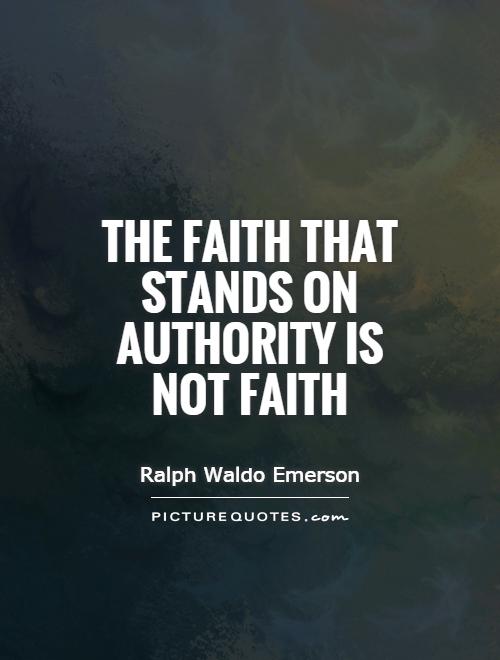The faith that stands on authority is not faith

The faith that stands on authority is not faith
Ralph Waldo Emerson, a prominent American essayist, lecturer, and poet, was a leading figure in the transcendentalist movement of the mid-19th century. He believed in the power of individualism, self-reliance, and the importance of trusting one's own intuition and inner voice. One of Emerson's most famous quotes is, "The faith that stands on authority is not faith." This statement encapsulates his belief that true faith cannot be based solely on external sources of authority, such as religious institutions or dogma.Emerson argued that relying on external authorities for one's beliefs and values is a form of intellectual and spiritual laziness. True faith, according to Emerson, is a deeply personal and individual experience that comes from within. It is a connection to something greater than oneself, a sense of transcendence and unity with the universe. This kind of faith cannot be dictated or imposed by others; it must be discovered and cultivated through one's own experiences, reflections, and insights.
For Emerson, true faith is a dynamic and evolving process that requires constant questioning, exploration, and growth. It is not a static set of beliefs or doctrines to be blindly accepted, but a living, breathing relationship with the divine. This kind of faith is not afraid to challenge conventional wisdom, question authority, and think for itself. It is a courageous and independent stance that requires courage, honesty, and openness to new possibilities.
Emerson's emphasis on the importance of personal experience and intuition in matters of faith resonates with the core principles of transcendentalism. Transcendentalists believed in the inherent goodness of humanity, the divinity of nature, and the power of the individual to connect with the divine through direct experience. They rejected the idea of a distant, authoritarian God and instead embraced a more intimate and personal relationship with the divine.












 Friendship Quotes
Friendship Quotes Love Quotes
Love Quotes Life Quotes
Life Quotes Funny Quotes
Funny Quotes Motivational Quotes
Motivational Quotes Inspirational Quotes
Inspirational Quotes